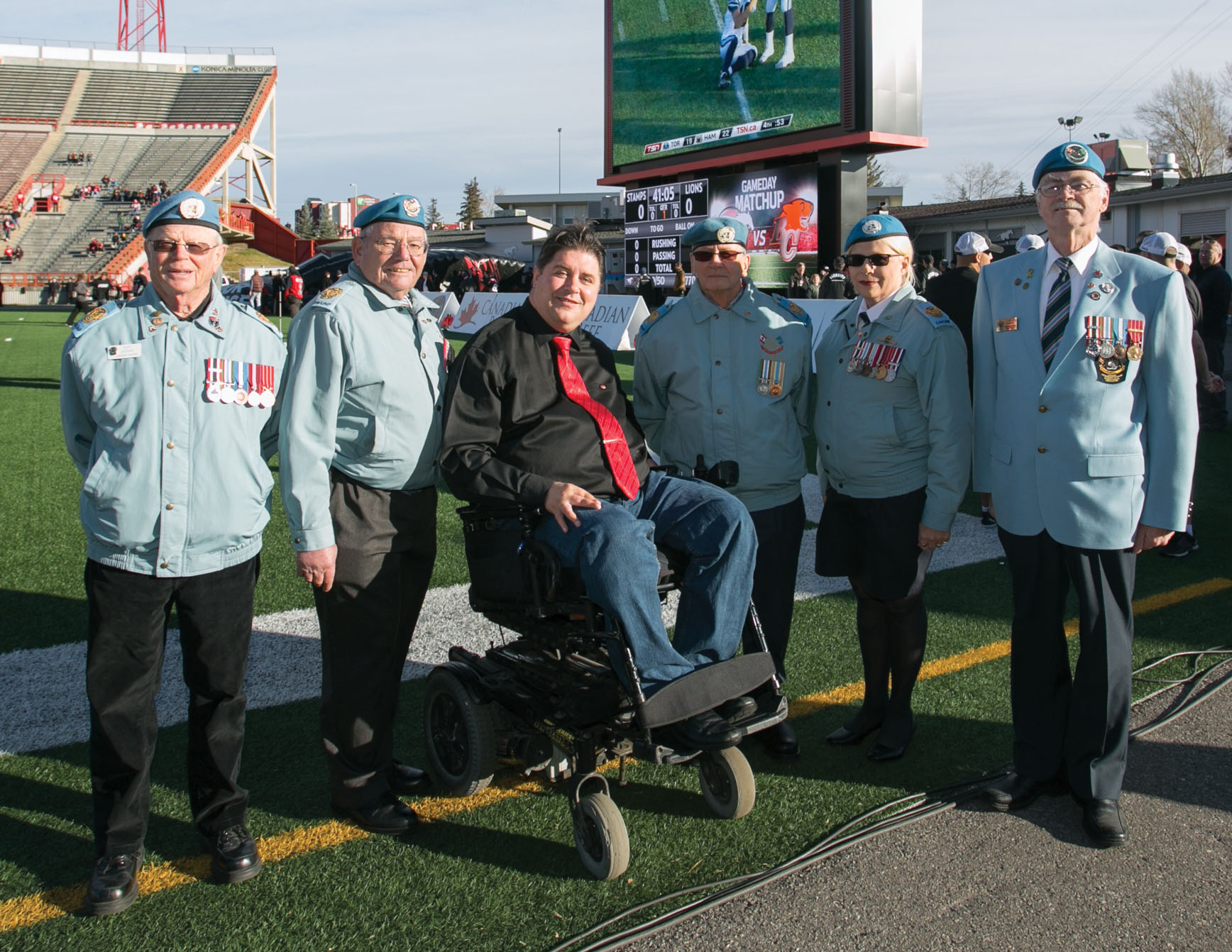Kent Hehr, the new Minister of
Veterans Affairs, promises to make
veterans’ lives better in 2016
Minister of Veterans Affairs Kent Hehr, the 30th since the department was created at the end of the Second World War, is often pictured in shirtsleeves, looking as if he has momentarily abandoned a pile of work and is anxious to return to it.
And what a pile there is. The 15 items in his mandate letter from Prime Minister Justin Trudeau include delivering a higher standard of service and care; improving financial support; reopening nine regional offices; and creating two new centres of excellence in veterans’ care.
“I have an aggressive mandate on what I see as good public policy,” he said in a year-end interview with Legion Magazine, “a mandate that is broad and will serve veterans…that will make their lives better, some things easier.” He hopes to have already achieved some goals by the time this story appears, and to have made major headway by the end of 2016. It will take a lot of hard work.

Veterans Affairs Minister Kent Hehr visits with veterans in Calgary during the Canadian Football League’s annual tribute to veterans. [Veterans Affairs Canada]
But Hehr is used to rolling up his sleeves and getting to it. It took hard work to reclaim his life after being rendered a quadriplegic in a drive-by shooting in 1991, when he was a college student and star hockey player. He may rely on a wheelchair to get him from room to room, but the energy to go places and do things is entirely his own. ‘Tireless’ is the word hometown media most often used to describe him. He earned a law degree in 2001, his second, and was named Graduate of the Decade by the University of Calgary. Aside from his law practice, he got so vigorously involved in community service that he made the Calgary Herald’s list of 20 Most Compelling Calgarians to Watch. In 2008, he was elected to the Alberta Legislature and served two terms.
But he soon set his sights upward. “Opposition work is honorable work,” he told the Edmonton Sun in 2012, “but let’s face it—decisions are made at the big kids’ table,” a table he joined in 2015 after he and Darshan Kang were the first Liberals elected in Calgary since 1968 in the first wave of Trudeaumania.
His dedication to working together for the greater good, mindless of political stripe, has been frequently noted, something he is carrying on. Opinions of veterans’ groups he said, will guide him in making decisions.
“I love their enthusiasm, love what they do…and thank them for it,” said Hehr. But he’s aware of the increasing load they have carried. “We have to ensure we’re not offloading our responsibilities to the non-profit sector.… At the end of the day, the buck stops at Veterans Affairs. This is our job.”
He’s also mending fences with VAC employees, who he describes as in “shell shock” after a decade of budget and job cuts and working for a government “who was not being a partner with them.”
Hehr comes across as the type of person more likely to be found in pubs chewing over issues with constituents and community activists than in pricey restaurants with political cronies. One of his political heroes is former Progressive Conservative Prime Minister Joe Clark, who represented the same Calgary Centre riding from 2000 to 2004.
“I always thought of him as a guy I just trusted to do the right thing,” Hehr wrote in a letter published in the Calgary Herald. “It’s that kind of integrity I promise to bring to the House of Commons.”
But he’s also a political realist. “Politics is the art of the possible,” he said. “You can’t make decisions without evidence. Show me how this makes sense policy-wise and financially. That always plays a role. What can I get out of Treasury Board, what is reasonable? What moves the file forward?”
So Hehr is careful in what he promises. Some things, like hiring more staff and working to reopen regional offices, will happen quickly. It may take more time to marry the New Veterans Charter and the Pension Act to provide lifelong disability pensions as an option. Retroactivity will be studied in the process, he said.
I have an aggressive mandate on
what I see as good public policy.
“Will it be perfect? No, but I can assure you it will be better.” He’s not going to be perfect either, he has said. “Let me admit right now that I’m going to make mistakes,” he said in the Herald letter. “Probably many. It will be similar to the steep learning curve you watched me climb as a new MLA. But I am also going to do some good things.”
Among them is the culture change at VAC called for by veterans, advocates and the veterans ombudsman, the culture of “care, compassion and respect” promised by Deputy Minister of VAC Walter Natynczyk at the 2015 Military and Veterans Health Research Forum.
If Hehr delivers on most fronts, veterans may hope it’s for a longer term than has become the norm. Since 1993, the terms of VAC ministers has gotten shorter, averaging just under a year and a half, with six ministers serving less than a year, and the longest term just shy of four years. In contrast, the first 15 VAC ministers held the post an average of just over three years, and the two longest terms were seven years.
“This is the greatest thing that I will get an opportunity to do in my life,” said Hehr. “I would love to be the minister for the full four years of this government. But I do not get to make that decision. I serve at the pleasure of the prime minister.”
Advertisement


















